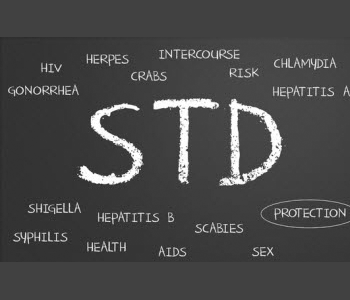How Can You Prevent STDs: A Guide to Testing and Prevention
A sexually transmitted disease (STD) is an infection that is spread between people during sexual contact. STDs can cause symptoms that range in severity from minor discomfort to death. According to The American Congress of Obstetricians and Gynecologists (ACOG), STDs are the most common spread diseases in the US other than the common cold and flu.

How Can You Prevent STDs
The only way to fully protect yourself from contracting an STD is by abstaining from sexual activity. There are other ways that you can greatly reduce the risk of contracting an STD.
Practice Monogamy – Knowing your sexual partners and committing to a monogamous relationship will greatly reduce your chances of contracting an STD. It is wise for both people to be tested for STDs before entering into a sexual relationship.
Use Condoms – Using a male latex condom is a valuable tool in the prevention of STD transmission. Using a spermicide will help with lubrication and kill some of the potential viruses.
Reduce Partners and Risky Practices – The more sexual partners you have the higher your risk for STDs. Additionally, breaks in the skin caused during sexual activity make it easier for diseases to be passed back and forth.
Vaccination – There are immunizations available that help with prevention of STD transmission. HPV vaccines are given to both teen girls and women through age 26 as well as teen boys and men through the age of 21. It is best to receive three doses of this vaccine before becoming sexually active. Additionally, at birth and as part of the childhood vaccination schedule the hepatitis B vaccination is given.
Testing – The best way to avoid spreading STDs is to undergo testing. Ensuring that you and your partner are free of STDs before entering into a relationship will help avoid transmission.
Testing For Prevention of STDs
Most people who are infected with an STD have such mild symptoms they don’t suspect anything and show no signs or symptoms at all. When patients attend their annual obstetrics and gynecology appointment it is vital that they discuss the potential for STD exposure. During this check up your obstetrician can test for a variety of STDs.
According to the CDC the transmission of STDs is a major public health challenge in the United States.
“CDC estimates that there are approximately 19 million new STD infections each year — almost half of them among young people 15 to 24 years of age. Yet, most infections have no symptoms and often go undiagnosed and untreated, which may lead to severe health consequences, especially for women. The only way to know for sure is to be tested. Talk to a health care provider about which STD tests are right for you.”
The STD tests that are available to you through your gynecologist in Chicago can identify the following STD’s:
- Chlamydia
- Gonorrhea
- Hepatitis, Viral
- Herpes, Genital
- HIV/AIDS & STDs
- Human Papillomavirus (HPV)
- Pelvic Inflammatory Disease (PID)
- STDs and Infertility
- Syphilis
- Trichomoniasis
Prevention of STD transmission relies on testing. If people do not know that they have been infected with an STD they are at risk of passing the disease to others. At Northwestern Women’s Health Associates our providers recommend annual STD testing for all patients who are sexually active and have multiple partners within a year. If you have additional questions about STD testing or think you may be experiencing symptoms contact our OBGYN office in Chicago and schedule an appointment.
If you have asked how you can prevent STDs the answer is that you should start by getting tested as soon as possible.
DISCLAIMER: All information on this website is provided for informational purposes only and is not intended to be construed as medical advice. Northwestern Women’s Health Associates shall not be liable for any errors or inaccuracies contained herein, or any actions taken in reliance thereon.




Comments are closed.